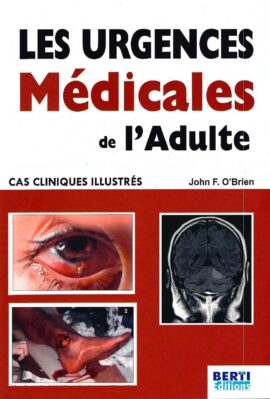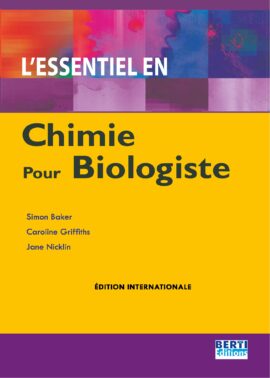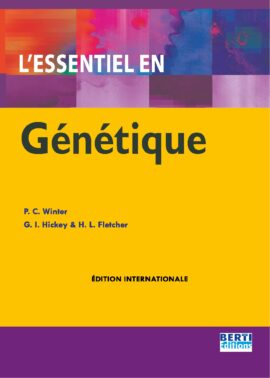Le sujet, son symptôme, son histoire : études du symptôme somatomorphe
5.899,40 د.ج
English summary: Drawing from several clinical histories derived from their own daily practice, the authors, both of whom are neurologists, attempt to shed light on the complex nature of the « somatomorphic symptom » – one which, while taking the form of a body symptom, is not, however, associated with any lesion which could account for it. A product of the unconscious, in the same way as dreams or slips of the tongue, somatomorphic symptoms allegedly give rise to one-third of all inquiries made to doctors, who are usually ill-equipped to answer them. The main thrust of the latter’s intervention is to ascertain whether the complaint stems from an organic pathology.While taking into consideration recent advances in the neurosciences, the authors transpose into a clinical context concepts unveiled by Freud, and later by Lacan, in order to understand the constituent elements of this type of symptom, and its significance. Using this legacy as their point of departure, they urge doctors to pay close attention to the history related to them by their patients, and to be careful not to interpret it in their place. From this perspective, consideration of each subject’s utter uniqueness emerges as an ethical imperative which enables physicians to decipher the real meaning of the query made to them, and thus to provide the proper therapeutic support. French description: A partir de plusieurs histoires cliniques issues de leur pratique quotidienne, les auteurs, neurologues, tentent d’eclairer, dans sa complexite, le symptome somatomorphe: symptome qui, prenant la forme d’un symptome du corps, n’est pourtant pas associe a une lesion pouvant en rendre compte. Formation de l’inconscient, au meme titre que le reve ou le lapsus, le symptome somatomorphe motiverait jusqu’a un tiers des demandes adressees au medecin, habituellement mal prepare a y repondre. Verifier qu’il ne s’agit pas d’une pathologie organique constitue sa principale intervention. Tout en tenant compte des avancees recentes des neurosciences, les auteurs restituent dans leur pertinence clinique des concepts mis au jour par Freud puis Lacan pour comprendre les elements constitutifs de ce type de symptome et le sens qu’il peut avoir. A partir de cet heritage, ils proposent au medecin de porter interet a l’histoire que lui raconte le sujet en se gardant bien d’interpreter a sa place. A l’horizon de cette position, la consideration de la singularite absolue de chaque sujet apparait comme un imperatif ethique qui permet d’entendre la veritable demande adressee au soignant, et, par la, de soutenir un accompagnement therapeutique. About the Author Frédéric Dubas est docteur en médecine (Paris 6, Pitié-Salpêtrière, 1981) et responsable du Département de neurologie du CHU d’Angers (en 2004).Catherine Thomas-Antérion, neurologue, est responsable de la consultation de mémoire depuis 1993 et du Centre Mémoire Ressource et Recherche de Saint-Étienne ainsi que présidente du GRECO (Groupe de Réflexions sur les Outils Cognitifs) depuis 2000 et du FARAP (Forum Alzheimer Rhône Alpes des Professionnels).
English summary: Drawing from several clinical histories derived from their own daily practice, the authors, both of whom are neurologists, attempt to shed light on the complex nature of the « somatomorphic symptom » – one which, while taking the form of a body symptom, is not, however, associated with any lesion which could account for it. A product of the unconscious, in the same way as dreams or slips of the tongue, somatomorphic symptoms allegedly give rise to one-third of all inquiries made to doctors, who are usually ill-equipped to answer them. The main thrust of the latter’s intervention is to ascertain whether the complaint stems from an organic pathology.While taking into consideration recent advances in the neurosciences, the authors transpose into a clinical context concepts unveiled by Freud, and later by Lacan, in order to understand the constituent elements of this type of symptom, and its significance. Using this legacy as their point of departure, they urge doctors to pay close attention to the history related to them by their patients, and to be careful not to interpret it in their place. From this perspective, consideration of each subject’s utter uniqueness emerges as an ethical imperative which enables physicians to decipher the real meaning of the query made to them, and thus to provide the proper therapeutic support. French description: A partir de plusieurs histoires cliniques issues de leur pratique quotidienne, les auteurs, neurologues, tentent d’eclairer, dans sa complexite, le symptome somatomorphe: symptome qui, prenant la forme d’un symptome du corps, n’est pourtant pas associe a une lesion pouvant en rendre compte. Formation de l’inconscient, au meme titre que le reve ou le lapsus, le symptome somatomorphe motiverait jusqu’a un tiers des demandes adressees au medecin, habituellement mal prepare a y repondre. Verifier qu’il ne s’agit pas d’une pathologie organique constitue sa principale intervention. Tout en tenant compte des avancees recentes des neurosciences, les auteurs restituent dans leur pertinence clinique des concepts mis au jour par Freud puis Lacan pour comprendre les elements constitutifs de ce type de symptome et le sens qu’il peut avoir. A partir de cet heritage, ils proposent au medecin de porter interet a l’histoire que lui raconte le sujet en se gardant bien d’interpreter a sa place. A l’horizon de cette position, la consideration de la singularite absolue de chaque sujet apparait comme un imperatif ethique qui permet d’entendre la veritable demande adressee au soignant, et, par la, de soutenir un accompagnement therapeutique. About the Author Frédéric Dubas est docteur en médecine (Paris 6, Pitié-Salpêtrière, 1981) et responsable du Département de neurologie du CHU d’Angers (en 2004).Catherine Thomas-Antérion, neurologue, est responsable de la consultation de mémoire depuis 1993 et du Centre Mémoire Ressource et Recherche de Saint-Étienne ainsi que présidente du GRECO (Groupe de Réflexions sur les Outils Cognitifs) depuis 2000 et du FARAP (Forum Alzheimer Rhône Alpes des Professionnels).






